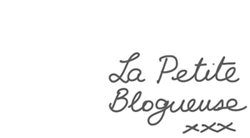Usually you learn things in a certain order.. starting with simple words and phrases and going into more complicated ones. Different courses explain the same words/phrases/concepts in different ways (but in a similar order), and the more times you are exposed to the same words/phrases, the more it sticks in your head.
For eg: Michel Thomas - I had learnt devoir / dois / doit / devez / devons (=must, have to) but then in Pimsleur I heard the same word again which I assumed was the same word.. the sentence was "Je vous dois combien?" (How much do I owe you?). I made the connection that that word must have multiple meanings. Then, only an hour later I went to Borders bookstore, picked up a book called "French demystified" and flipped to a random page and what do you know? I had turned to a page explaining that that word did indeed have multiple meanings! One of which was 'must' and another which was 'owe'.
Today, I was listening to Pimsleur and they were talking about 'gen/s'.. which I knew meant 'person/people' because of Teach yourself French starter kit. However, it didn't really make sense.. Pimsleur is audio only so I had to use my brain to figure out what they were saying was in fact 'j'en' (contraction of 'je' and 'en'). Then I remembered I had learnt on 'Walk, Talk and Learn French' there was a lesson involving 'il y en a...'. I knew that 'il y a' meant 'there is/are' because of Teach Yourself French Starter Kit, but I never really knew what the 'en' part meant.. so then I heard it on Pimsleur, and voila!! It means 'some' or 'any' and is explained quite well on the french.about.com site (a great site btw!)
Adverbial pronouns:
The French adverbial pronouns y and en are so tiny that one might think their role in a sentence is not very important, but in fact quite the opposite is true. They are both extremely important in French.
En replaces the partitive article + noun or de + indefinite article + noun. It is equivalent to "some," "any," or "one" in English.
Another time, I had learnt through Walk, Talk and Learn French about 'le plus' meaning 'the (most) ...est'.. it is equal to the 'est' part of a word, whereas 'plus' by itself equals to the 'er' part eg tall (grand(e)), taller/more tall (plus grand(e)), tallest/most tall (le/la plus grand(e)) and then I was watching Barbapapa on YouTube and heard them say something like 'la plus belle maison' (the most beautiful house).
explained on french.about.com





















0 comments:
Enregistrer un commentaire